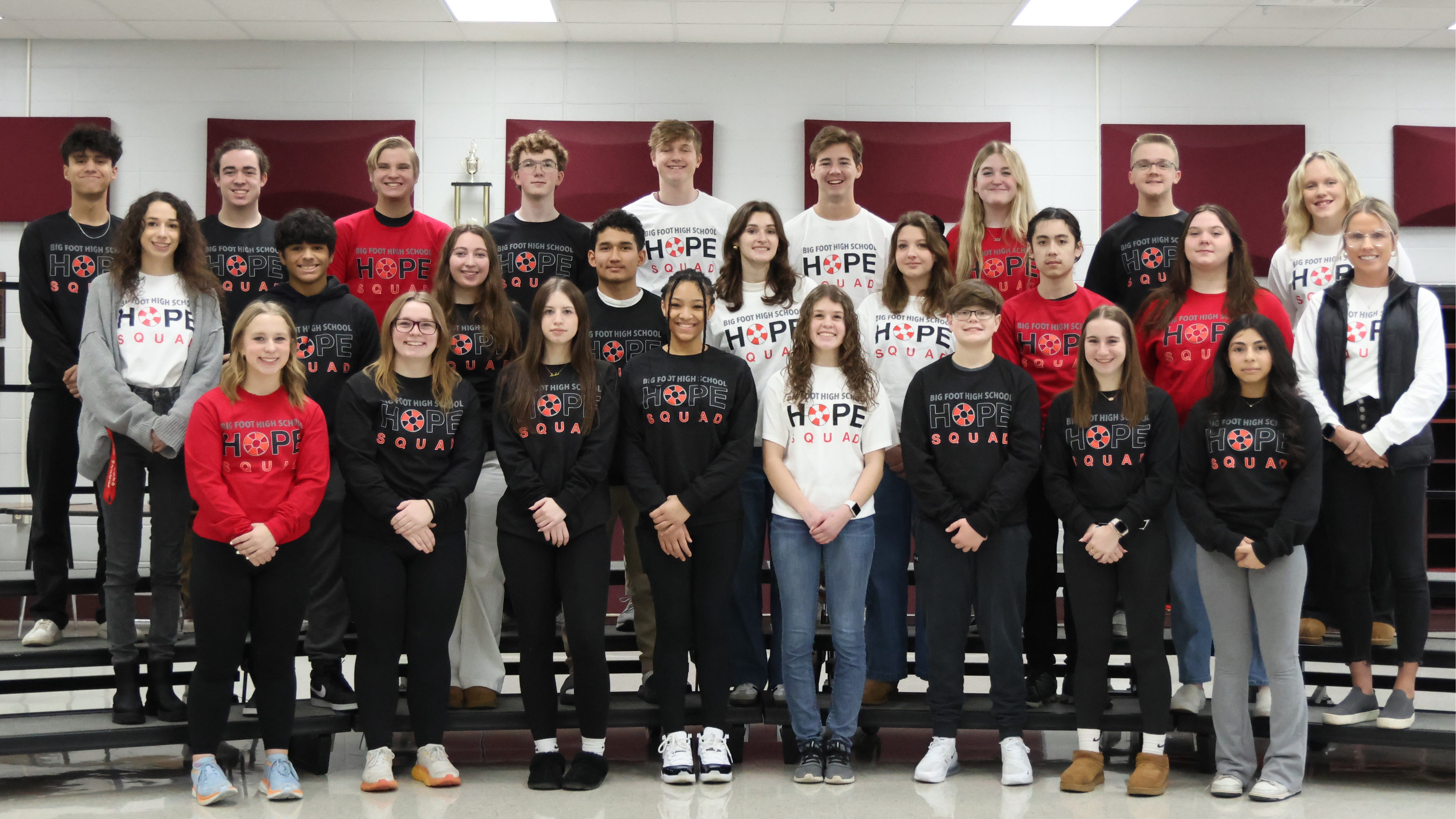Departments
Students/Parents
Student Services

2023-2024 HOPE Squad - Row 1: Kelsie Kreoning, Karlie Kroening, Andie Beetstra, Maliyja Spearman, Lainie Esser, Trevor Morana, Kate Hummel, Kara Artiz; Row 2: Ms. Kayla Guenveur, Ta-Kai Hubbert, Aubri Waswo, Clemente Olague, Lauren Decker, Sophia Jackson, Jonathan Baker, Wrigley Grindle, Mrs. Gregory; Row 3: Erik Colin, Logan McHugh, Timothy McIntyre, Eli Laing, Patrick Corey, AJ Hartmann, Eleanor Paulson, Gavin Baxter, Alex Bender; Not Pictured: Easton Gregory, Jane Pick, Lishi Palmer, Joe Leon, Ella Lippert, Hannah Grever, Humberto Nova Valdez
"Our goal is to prevent suicide through public awareness and education, reduce stigma, and serve as a resource to those touched by suicide."
FRESHMAN | SOPHOMORES | JUNIORS | SENIORS |
|---|---|---|---|
Gavin Baxter | Johnathon Baker | Patrick Corey | Chloe Amann |
Andie Beetstra | Erik Colin | Lauren Decker | Dylan Boyle |
Alexis Bender | Karlie Kroening | Hannah Grever | Alexa Clary |
Wrigley Grindle | Kelsie Kroening | AJ Hartmann | Ciara Connelly |
Kate Hummel | Logan McHugh | Eli Laing | Gannon Emmerich |
Joe Leon | Timmy McIntyre | Lishi Palmer | Olivia Nordmeyer |
Ella Lippert | Tito Olague | Eleanor Paulson | Amelia Olague |
Aubri Waswo | Nicole Wardlow | ||
Sydney Wilson | |||
Victoria Zaraza |
Mr. AJ Paul
Ms. Kayla Guenveur
1. We value education.
The Hope Squad program was built by educators in partnership with mental health experts. The evidence-based training changes how schools approach mental health and suicide prevention.
2. We value taking initiative.
Hope Squad members are trained to take action when someone is struggling. Instead of waiting for a peer to come to them, Hope Squad members are the ones to reach out first.
3. We value openness.
Hope Squad members are trained to be aware of their peers and watch for warning signs. They learn to show empathy to their peers, listen without judgment, and reduce stigma regarding help-seeking and mental illness.
4. We value self-care.
You can help others best if you are also taking care of yourself. We advocate for maintaining healthy boundaries, building resilience, and avoiding burnout.
5. We value community.
It takes a village to raise a child, and it takes an entire community to save one. The Circles4Hope model recognizes the role of mental health partnerships, school programs, and community connections working together for suicide prevention.
1. Safety.
Hope Squad members recognize the warning signs of suicide, reach out to peers in distress, and refer them to trusted adults.
2. Connectedness.
Hope Squad members actively look for ways to support their peers and increase connectedness in their schools.
3. Bullying Prevention.
Hope Squad members recognize bullying, intervene, and encourage other students not to be bystanders.
4. Mental Wellness.
Hope Squad members promote resilience and self-care and work closely with their local mental health agency.
5. Reducing Stigma.
Hope Squad members reduce the stigma associated with mental illness and mental health and show that it’s okay to get help.
6. Substance Abuse Prevention.
Hope Squad members understand the complexity of substance abuse, encourage peers to make healthy choices, and persuade struggling peers to get help.